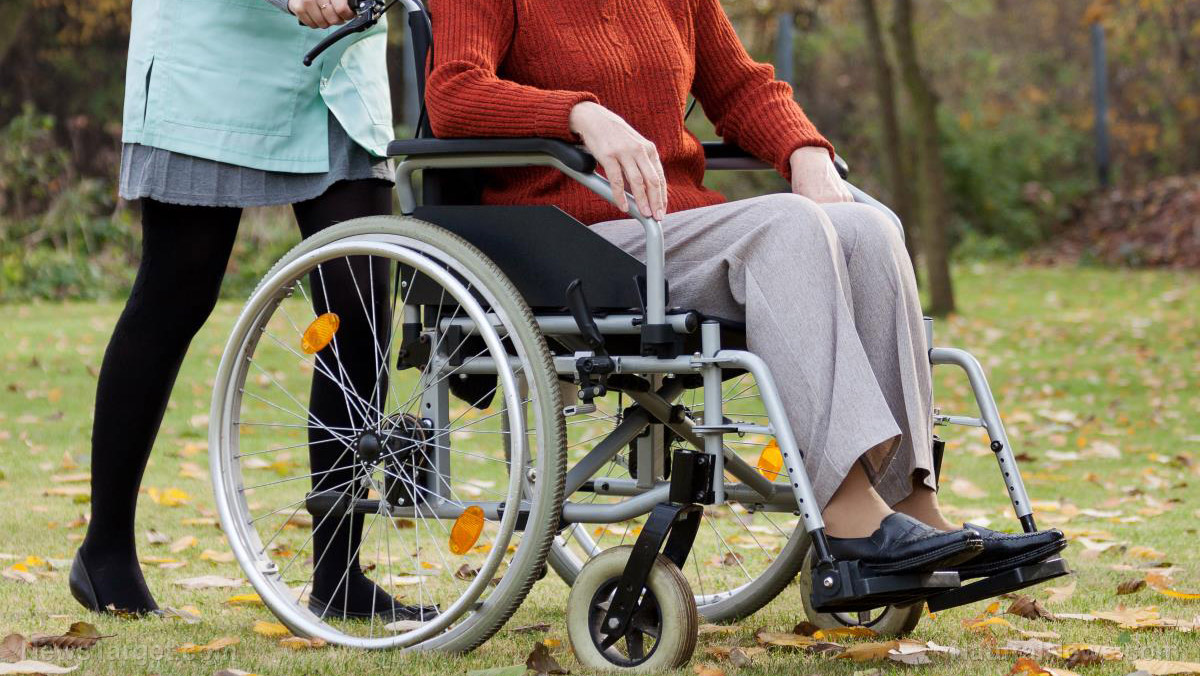The hidden dangers of using weight loss medications like Wegovy and Mounjaro
02/02/2025 / By Zoey Sky

- Women are increasingly turning to weight loss drugs like Wegovy and Mounjaro due to unrealistic beauty standards. Many use these drugs in secret to avoid the stigma associated with non-traditional weight loss methods.
- These medications, known as GLP-1 receptor agonists, mimic hormones that reduce hunger and promote weight loss. However, they carry serious risks, including gastrointestinal issues, stomach paralysis, pancreatitis and kidney damage.
- Many women hide their use of weight loss drugs due to societal judgment, fearing accusations of “cheating” to lose weight. This secrecy can lead to isolation, shame and a lack of medical oversight, increasing the risk of undetected side effects and mental health struggles.
- Weight loss medications are not a substitute for addressing the root causes of weight gain, such as poor diet, a sedentary lifestyle or mental health issues.
- Maintaining long-term health and well-being requires a balanced approach, including proper nutrition, physical activity and mental health care. While weight loss drugs may offer short-term results, they cannot replace the benefits of feeling strong, energized and confident through sustainable lifestyle changes.
With societal pressures and beauty standards that often dictate self-worth, more women are turning to weight loss medications like Wegovy and Mounjaro to shed pounds quickly and discreetly.
A recent poll revealed that one in ten women is already using these so-called “fat jabs,” while nearly three-quarters are considering them. However, many are doing so in secret, fearing the stigma associated with losing weight without using traditional methods like diet and exercise.
While these medications — known as GLP-1 receptor agonists — have been hailed as “miracle drugs” for their ability to curb appetite and promote significant weight loss, their growing popularity comes with a dark side.
Beyond the allure of rapid results, these drugs carry serious health risks that are often overlooked in the pursuit of a slimmer figure.
The hidden dangers of weight loss medications
Weight loss drugs like Wegovy and Mounjaro work by mimicking hormones that slow digestion and reduce hunger, helping users feel full for longer. While this can lead to impressive weight loss, it also comes with a host of side effects.
A recent study published in the journal Nature Medicine highlighted both the benefits and risks of these medications, revealing that while they may reduce the risk of certain conditions like dementia and addiction, they also increase the likelihood of severe gastrointestinal, pancreatic and kidney issues.
Common side effects include nausea, vomiting and diarrhea. In rare cases, weight loss drugs may also cause stomach paralysis, a condition where the stomach muscles stop working, leading to severe discomfort and digestive problems.
More alarmingly, these drugs have been linked to pancreatitis (inflammation of the pancreas) and kidney damage, which can progress silently until it becomes life-threatening.
For women who are taking these medications in secret, the risks are compounded. Without medical supervision, they may not recognize the early warning signs of these serious conditions.
Additionally, the pressure to hide their use can lead to feelings of isolation and shame, further exacerbating mental health challenges.
The stigma of “cheating” about weight loss
The poll also revealed that many women feel compelled to keep their use of weight loss medications a secret due to societal judgment. The idea that weight loss should be achieved solely through diet and exercise is deeply ingrained, creating a stigma around using medical interventions.
This stigma can prevent women from seeking proper medical guidance, leaving them vulnerable to the risks associated with unsupervised drug use. (Related: Diane Kazer on Decentralize.TV: The dark side of WEIGHT LOSS and the rise of alternative therapies.)
Moreover, reliance on these medications often overshadows the importance of addressing the root causes of weight gain, such as poor eating habits, mental health struggles or a sedentary lifestyle. While weight loss drugs can provide a temporary solution, they are not a substitute for sustainable lifestyle changes.
Natural ways to lose weight safely
For women seeking to lose weight without the risks of medication, here are several science-backed strategies that can help achieve sustainable results:
Focus on balanced nutrition
Prioritize protein-rich foods like lean meats, fish, eggs and legumes to preserve muscle mass and keep you feeling full.
Incorporate a variety of vegetables, such as leafy greens, tomatoes and bell peppers, to boost nutrient intake without excess calories.
Include healthy fats like olive oil, avocados and nuts in moderation to support overall health.
Exercise regularly
Combine cardio exercises like walking, jogging or cycling with strength training to build muscle and burn fat.
Aim for at least 150 minutes of moderate-intensity exercise per week, as recommended by health guidelines.
Increase fiber intake
Foods high in dietary fiber, such as fruits, vegetables, whole grains and legumes, can help you feel fuller for longer and stabilize blood sugar levels.
Consume at least 25-30 grams of fiber daily to support healthy digestion and weight loss.
Address mental health
Stress, anxiety and depression can also contribute to overeating and weight gain. Seeking support from a therapist or counselor can help address these underlying issues.
Set realistic goals
Remember that sustainable weight loss is a gradual process. Aim to lose one to two pounds per week through consistent, healthy habits rather than quick fixes like weight loss drugs.
The rise in the secretive use of weight loss medications highlights the need for greater awareness of their risks and the importance of addressing weight loss holistically. Women should feel empowered to seek help without fear of judgment, whether through medical professionals, nutritionists or mental health counselors.
While weight loss drugs like Wegovy and Mounjaro may offer short-term solutions, they are not without significant risks. For long-term health and well-being, a balanced approach that includes proper nutrition, regular exercise and mental health support remains the safest and most effective way to achieve and maintain a healthy weight.
In a society that often equates thinness with success, it’s crucial to remember that health is not just about the number on the scale — it’s about feeling strong, energized and confident in your own skin. And that’s something no medication can provide.
Visit DangerousMedicine.com to learn the truth about Ozempic, Wegovy, Mounjaro and other dangerous drugs.
Watch the video below to learn more about the “disturbing” truth about Ozempic.
This video is from the Man in America channel on Brighteon.com.
More related stories:
VENOM NATION: Shocking number of Americans have tried Gila monster venom-based weight loss drugs.
Sources include:
Submit a correction >>
Tagged Under:
Big Pharma, GLP-1 receptor agonists, health science, Mounjaro, Ozempic, pharmaceutical fraud, Prescription drugs, slender, truth, venom peptide, Wegovy, weight loss, weight loss drugs, weight management, women's health
This article may contain statements that reflect the opinion of the author





















